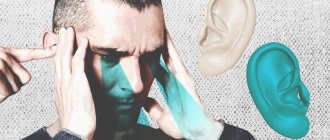If this condition often occurs - I can’t stop laughing, then read the article. It contains a lot of tips on how to overcome laughter.
Laughter is a natural reaction, and if a person starts laughing, he cannot be called bad. However, it all depends on the situation. If the latter is not entirely joyful or even sad, and the lips themselves begin to smile, or inappropriate laughter appears, you will feel awkward. For example, they shout at you, and you just can’t stop laughing. Or you received sad news, but you can’t help it and start laughing. Of course, this cannot be called real laughter. In such situations, a person is unlikely to experience joy.
Read another interesting article on our website on the topic: “How to always look good in photographs?” . You will learn how to learn how to pose beautifully for photos and smile in photographs.
The situation when you start laughing inappropriately turns out to be awkward and offensive - laughter can offend the people who are standing next to you. If this has happened to you, it does not mean that you have health problems. This reaction occurs quite often and is called nervous laughter. Let's find out why it appears and how to overcome it. Read on.
Why you want to laugh at the wrong moment: reasons for inappropriate laughter
Laughs at the wrong moment
One of the first psychologists to pay attention to nervous laughter was Stanley Mealey-Graham . This happened in the 60s of the 20th century . The psychologist worked at Yale University . There he conducted research into how far people would go if they blindly trusted authorities. So, why do you want to laugh at the wrong time? What are the causes of inappropriate laughter?
- A psychologist asked one group of people participating in an experiment to give electric shocks to others. However, there was no discharge; the fake people simply diligently pretended that they were in pain. And the second group of tormentors laughed diligently.
- This experiment allowed us to conclude that laughter does not appear out of malice; it can occur if a person finds himself in a very uncomfortable situation. This is one of the main reasons.
- After this, another psychologist, Vileyanur Ramachadran , suggested that initially laughter was a specific indicator showing the individual that everything is fine, that he should not worry and can relax.
- And nervous smiles and giggles represent a kind of psychological protection - if I smile, nothing negative has happened. That is the scientist believes that laughter helps to distract from bad emotions.
The authors of a study conducted at Yale University in 2015 . They examined unusual emotional situations, such as the urge to pinch someone or giggle during a moment of stress. Research has helped to conclude that emotionality overloads a person and he wants to relieve tension and restore balance as soon as possible, and he begins to laugh.
Why is laughter bad?
Laughter is not as harmless for relationships as it might seem at first glance.
What kind of reaction do desperate merrymakers sometimes face?
Resentment
Not everyone is ready to listen to jokes about themselves. Even grins or incomprehensible “hee-hee” can provoke a serious offense in the interlocutor. It may seem to him that they are laughing at him, they want to humiliate him, or demonstrate superiority.
Or a person finds himself in an awkward situation, he is ashamed, hurt - and instead of support he received a slap in the face with a malicious cackle.
“...I have always been a “pocket” jester and a clown in any company. My cruel jokes amused everyone who was not the object of them. Mostly he angrily and caustically ridiculed people’s shortcomings: excess weight, bald heads, glasses. Yes, anything - there was always something to complain about. And I can’t count how many people I’ve offended, brought to tears and complexes. The girls were afraid to go into the smoking room if they knew I was there.
Later I found out that my friends had already begun to get together and spend time without me, since it was becoming more and more difficult to bear the constantly neighing something...”
Oleg V., vocal teacher, Ufa Read full text of the result
Incorrect assessment by the interlocutor
People say: “Laughter without a reason is a sign of a fool.” It happens that laughs to connect words are perceived as a sign of narrow-mindedness and immaturity.
You try to tell a joke and halfway through you start laughing. Or during an exam you burst into hysterical laughter, for which you are asked to leave the room. In a responsible situation, nervous giggles prevent you from showing yourself as adequate and responsible. People around you don't take it seriously and get irritated. You get upset, but you don’t know how to contain your laughter.
Undesirable development of the situation
For an inappropriate smile, as they say, it doesn’t take long to get caught. An angry, tired person is more likely to think that a fellow traveler is laughing at him, rather than just remembering a funny incident.
In general, in our society, a person smiling on the street seems strange and suspicious. Is everything okay with his head?
Depreciation
The nature of humor is a paradox, often with sexual overtones. Confusion, a mistake that contradicts established perceptions.
At the beginning of the twentieth century, the world exploded with laughter when Charlie Chaplin kicked police officers in the area below the back. After this, law enforcement officers lost their weight in the eyes of the average person. Modern stand-up shows have ridiculed the length and breadth of family and love. True male friendship now raises suspicions: “Are they the same orientation?”
Humor from the waist down has permeated marital relationships. Respect is destroyed by constant teasing of each other. She laughs at him and ends up devaluing masculinity. Once, twice, three times - everything is fine, but then it hits a nerve - and he loses his attraction to her irrevocably. She, in turn, loses her feminine attractiveness due to her husband’s sarcasm.
Inability to solve the problem
Laughter relieves tension, that is, kills feelings: fear, sadness, grief, as well as love, sympathy, joy. I laughed a lot, and then I felt empty, indifferent, exhausted, as if I was carrying bags.
Laughter is used to treat psychotraumas in measured doses: what cannot be changed, but lies on the heart as a heavy burden, resentment, phobia, can be ridiculed.
The realization of the absurdity of the fear of the dark caused Evgenia K. to laugh liberatingly. She looked at the situation with different eyes, many years of horror burst like a soap bubble:
“...I couldn’t sleep at all. I had a large hammer under my pillow. I placed a saucepan under each window at night, and a tin bucket on a small stool near the door. If a bandit comes in and bumps into the buckets and pans, it will all rattle and I will wake up. (You should hear my laughter now when I write about this!)..."
Read the full text of the result
But solving a current problem with ridicule means losing precious focus on the result and emotional fervor. Because it will be devalued, the matter will not move forward.
How to quickly stop smiling often and laughing loudly at stupid jokes: ways to overcome laughter
The reason for an untimely mistake is of course valid, and this happens to many people. But this does not make the plight of those who suddenly start giggling at a relative’s funeral or during serious negotiations with their boss any easier. How to quickly stop smiling often and laughing loudly at stupid jokes or in other situations? Below are ways to stop laughing. In these situations, psychologists advise doing the following:
- PAY ATTENTION WHEN YOU LAUGH
Try to analyze what most often causes such a reaction in you and avoid such situations. This may include the following:
- Conflict or scandal
- Sad event
- You feel guilty
There are certain situations that can cause you to start laughing for no reason, and if you understand them, you can prepare yourself.
- Tune in
If you need to get ready for an event where laughter would be inappropriate, try to prepare yourself a few hours in advance. You can do the following:
- Take a walk to relieve stress
- Take deep breaths
- Play out the scenario of upcoming events in your mind
- Practice good behavior
- TRY TO COMMUNICATE A LOT
The ability to control emotions and choose the right reactions is an experience that can be developed and trained. The more a person talks, the more often he is able to work through various situations (this applies to both conflict and sad ones). Communication will allow you to be less stressed.
I’ve already started laughing and I can’t stop: how to stop laughing?
Started laughing and can’t stop
Many have been in such situations and said: I’ve already started laughing and can’t stop - what should I do? How to overcome laughter in this case? It's an unfortunate situation, but there are a few solutions that can help.
- Imagine something that might scare you
Try to imagine something scary. Preferably in detail. This will allow you to switch.
- Think about boring things
For example, about what you ate for breakfast today. You can also list what exactly you are wearing or the surrounding objects. Think about your plans for this week. Another good idea is to calculate your expenses and income. Focusing on boring things can help you interrupt your nervous response and gain control.
- Keep your hands busy
Try twirling your bracelet or watch, touching your hair, touching your clothes, or rearranging things on the table surface. This will allow you to relax and calm down.
- Find an opportunity to get out
If possible, try to exit. Find a secluded place. There you can laugh, breathe or drink water.
- I'm about to laugh
If you feel like you're about to laugh, try shutting yourself down and repeating phrases like “I can hold back my laughter” or “I'm in control . Try not to say a word with the particle “not” , for example, “I’m not funny . Convince yourself by saying only affirmative sentences to yourself. If you see someone besides you laughing, try not to pay attention to this person, because laughter is a contagious thing. Try taking deep breaths.
- Pain
It is better to resort to this method if all else fails. This is the strongest of feelings that interrupts all other emotions. Try biting the tip of your tongue or twisting your finger. The nervous impulse will not take long to arrive, you will immediately shake yourself up and be able to forget about laughter.
Diseases that cause constant laughter
Laughter for no reason is often associated with an illness, indicating a mental disorder, genetic predisposition, or damage to the brain. The laughter of a sick person is easily confused with normal laughter, but is distinguished by accompanying symptoms and lack of joy.
Common manifestations of unhealthy laughter include:
- protruded tongue;
- visual impairment;
- disturbed sleep;
- trembling of hands and feet;
- the appearance of seizures;
- affectivity in behavior;
- involuntary coughing attacks with blinking.
Hebephrenic schizophrenia is manifested by foolishness, laughter, and a tendency to tell strange obscene and inappropriate jokes. Aggression and angry agitation often appear. The disease appears during puberty.
Symptoms of Tourette's syndrome include smacking, winking, involuntary opening of the mouth, and neck craning in children. Kids avoid crowds, they are insecure and often become depressed. The disease is marked by uncontrolled movements and vocal tics. A sick child swears loudly, uses obscene words or repeats what he hears, grimaces and laughs for no reason.
With Angelman syndrome, a genetic disease, the child also constantly laughs or smiles happily for no reason. Such children are called Parsleys or happy, trusting and good-natured dolls. These children with poor coordination have difficulty speaking. They often have epileptic seizures, and they do not develop, remaining permanently in childhood.
To stop involuntary laughter, sometimes 10-15 minutes are enough, but in some cases it will take as little as 1 hour. To do this, you need to learn to manage your emotions.
(you can vote for the article)
Tags: stop laughing
- Related Posts
- How to calm down, console with words a person who is far from you
- How to forget your ex-husband?
- How to stop thinking about a person who is in the past?
How to stop constantly and forever laughing at everything, at stupid things, for every reason?
The most important thing is to understand what kind of stupid things make you laugh. Scientists have found that it is specific situations that cause a smile. How to stop constantly and forever laughing at everything, at stupid things, for every reason?
- Perhaps laughter is caused by a certain person, his communication style, or his appearance.
- In this case, you should have less contact with him until you learn to restrain yourself.
- In general, removing yourself from a situation that makes you laugh is the best solution.
- It is important not to participate in what is happening, but only to be a witness.
- Look from the other side at what is happening.
Advice: If you just can't get rid of nervous laughter on your own and it's becoming a real problem, try seeing a therapist.
The doctor will be able to figure out why you are laughing and influence it.
Causes of involuntary laughter
How to stop laughing for no reason? Psychoanalysis can open the door to the control center of our emotions.
Why, out of all the variety of sensory manifestations, does the psyche choose one in all situations? Maybe others were once banned?
Who needs such a roaring cow?
Don't be a gray mouse - go, make friends, have fun, be interesting!
Leave your tears to yourself, who needs to look at your sour face?
Someone at the age of five was not allowed to cry out the pain of the death of his beloved hamster. Instead, they laughed at children's sincere feelings of loss. And then they devalued their first school love: “Have you fallen in love, ha ha ha?”
And now he is already an adult, taught only to laugh in any situation. Showing sincerity and compassion is awkward.
At school it was a shame to be an excellent student - serious and purposeful. “Make a simpler face, professor of sour cabbage soup.” In order not to become a whipping boy, to blend in with the crowd, it is safer to laugh through anguish, grimace, and mock others.
“...After the training I became kinder. And she was kind, but all this was hidden under the mask of grins and ostentatious rudeness. Probably out of fear that kindness could be considered weakness. Such protection. Nobody protected me, and I began to protect myself. Like this. As best I could. It was overgrown with a crust as thick as a walnut shell and there it hid its fragile and soft nature.
Now there is no need for it, because in kindness, openness and compassion, on the contrary, one feels great strength, not weakness...”
Ksenia R., accountant, St. Petersburg Read the full text of the result
We go to the circus to laugh maliciously at the clumsy clown. He fell, hit himself, sobs - and the audience laughs. A generation of children grew up hearing “Well, just wait!” or "Tom and Jerry".
Today, viral videos of people getting into trouble - jumping unsuccessfully, hitting their head on a pool, etc. - have millions of views.
Constant stimulation of evil joy does not allow the development of good joy. People grow up passionately wanting to be happy, but their feelings are limited by superficial perceptions. There is no depth, no mind-blowing love. Life is bland.
Sometimes nervous laughter is a sign of extreme stress. Tension and mental pain have a certain threshold. In order not to die, the body tries to reduce the intensity of passions by impulsively laughing or crying.
Let's say shedding tears is unacceptable. Then the only way is to laugh.
“When communicating with my dad, I often joked, as if I was defending myself from his heavy sarcasm and mockery.”
Tickling is a favorite show of affection in many families. A universal tool to stop whims, tears, and distract attention. Reflexive empty laughter, like an imitation of happiness and fun.
Laughter is of animal origin. Chimpanzees laugh dully when tickled, and orangutans grunt in a peculiar way. Scientists were able to hear the ultrasonic giggles of rats. Light tickling is believed to help children develop. But sometimes it borders on sadism. Catch him, wrap him in a blanket, scratch his heels until exhaustion, until he laughs uncontrollably. The baby is on the verge of tears, and the father seems to be experiencing pleasure, voluptuously adjusting the intensity and duration.
After this, you begin to laugh in advance yourself, just so as not to be subjected to an unpleasant execution again.
What diseases can constant laughter indicate?
Constant laughter may indicate the presence of illness.
If a person often experiences unreasonable laughter, it is advisable to check his health, as doctors are sure that he may have health problems. What diseases can constant laughter indicate? This may be a symptom of one of the following conditions:
- Hyperthyroidism
- Graves' disease
- Pseudobulbar syndrome
Less commonly, laughter may indicate Angelman syndrome . This is a rare chromosomal disorder that affects the nervous system. Patients may laugh due to strong stimulation of the parts of the brain responsible for joy.
There is also Tourette's syndrome . It is a neurobiological disorder that can cause tics and vocal outbursts. Typically, people suffering from this syndrome do not need treatment, but only if laughter does not interfere with school or work. Many medications and therapies can help minimize symptoms.
Laughter can also be disturbing to those who use alcohol or drugs . Such people are not always able to control their nervous system. The latter gives signals that cause laughter.
In addition, causeless laughter may appear if a person suffers from the following conditions:
- Fear
- Anxiety
- Anxiety
- Stress
In such cases, it is advisable for a person to get rid of the source of the problem or take a sedative.
What is laughter?
Laughter, like crying, is an emotional reaction of a person.
You can laugh from tickling or from a funny situation, in order to get closer or to show your superiority. There is hysterical laughter or life-affirming laughter. They laugh at laughing gas or at other people's failures. Laughter for no reason is sometimes a symptom of mental illness. But let's not talk about sad things.
In general, it is more pleasant to live and communicate with a positive person who is prone to self-irony. However, there are people who suffer from increased laughter. Sometimes the question arises of how not to smile in general.
How can a schoolchild stop laughing in class for no reason?
Schoolchildren laughing in class for no reason is a common problem. Usually this happens due to a simple prank - the child might have put something on a classmate's chair, or simply remembered a very funny joke. How to stop laughing?
- The best solution is to listen carefully to what the teacher says and concentrate on the lesson.
- If you are distracted, your nervous system will calm down and you will be able to stop laughing.
- If the work is independent, try to focus on the task at hand.
There are many reasons for inappropriate laughter. This may be due to either a normal natural reaction or a specific disease. To overcome inappropriate laughter, you need to learn to distract yourself. Think about something scary, unpleasant, or vice versa – pleasant and calming. Just don't think about the thing that made you laugh.










